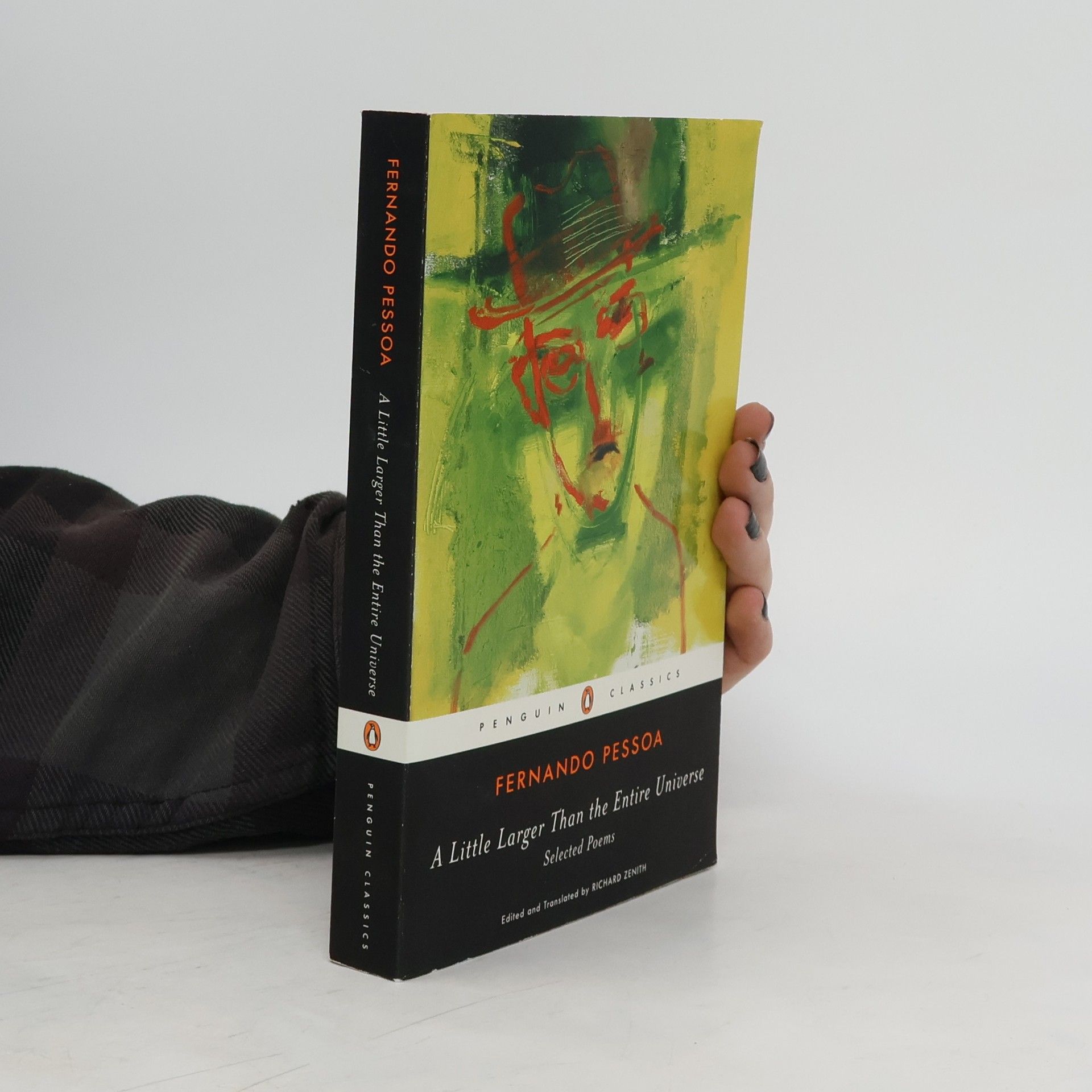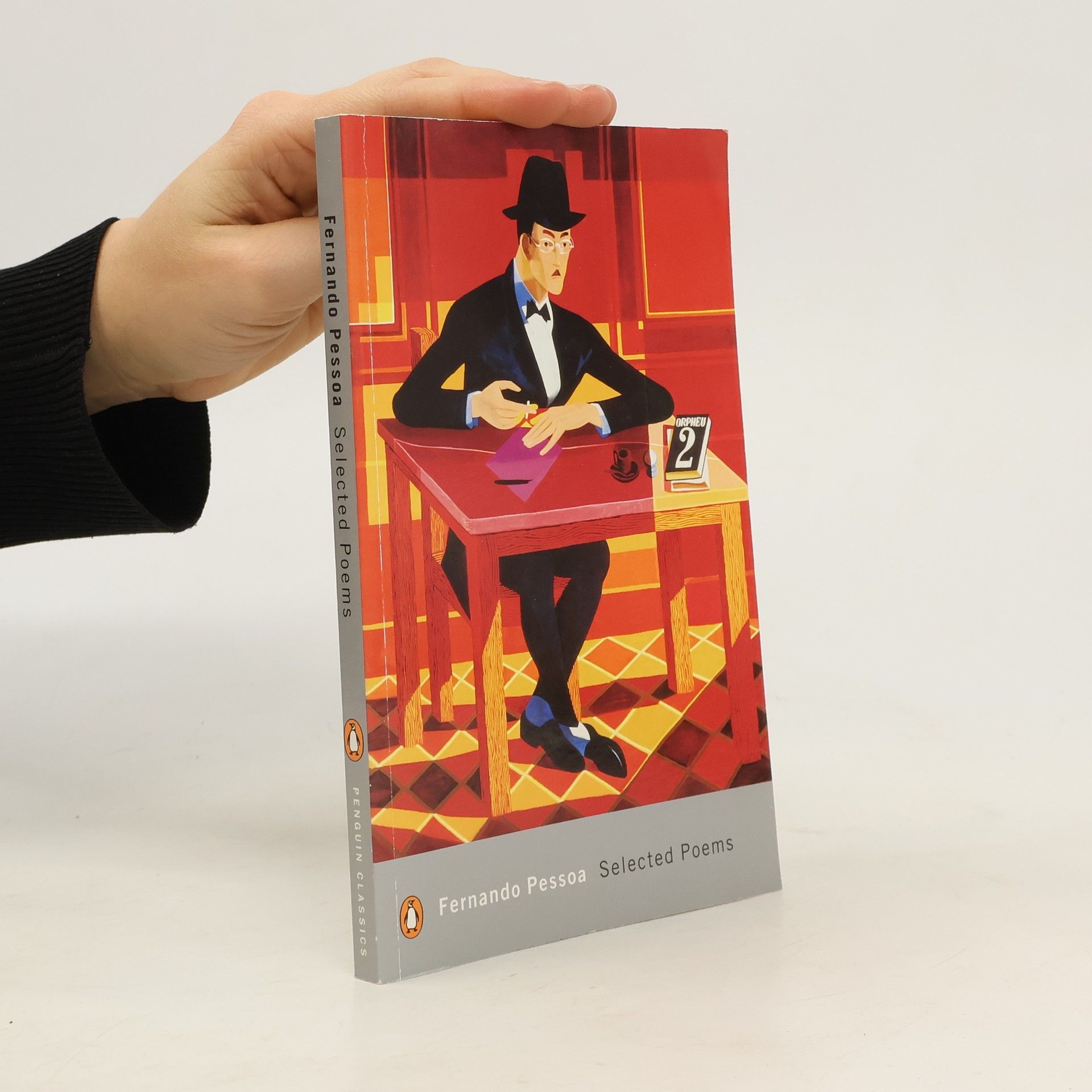Fernando Pessoa Livres
Fernando Pessoa était un poète et écrivain portugais, largement considéré comme l'une des figures littéraires les plus importantes du XXe siècle. Il est célèbre pour son utilisation novatrice des 'hétéronymes' – personnalités littéraires distinctes avec leurs propres styles, philosophies et tempéraments uniques, lui permettant d'explorer un vaste éventail d'expressions poétiques. Chaque hétéronyme, tel qu'Alberto Caeiro, Ricardo Reis et Álvaro de Campos, offrait une voix et une vision du monde différentes, contribuant à un corps d'œuvres aux multiples facettes et profond. L'approche innovante de Pessoa envers la paternité littéraire a créé une riche tapisserie de la littérature portugaise.



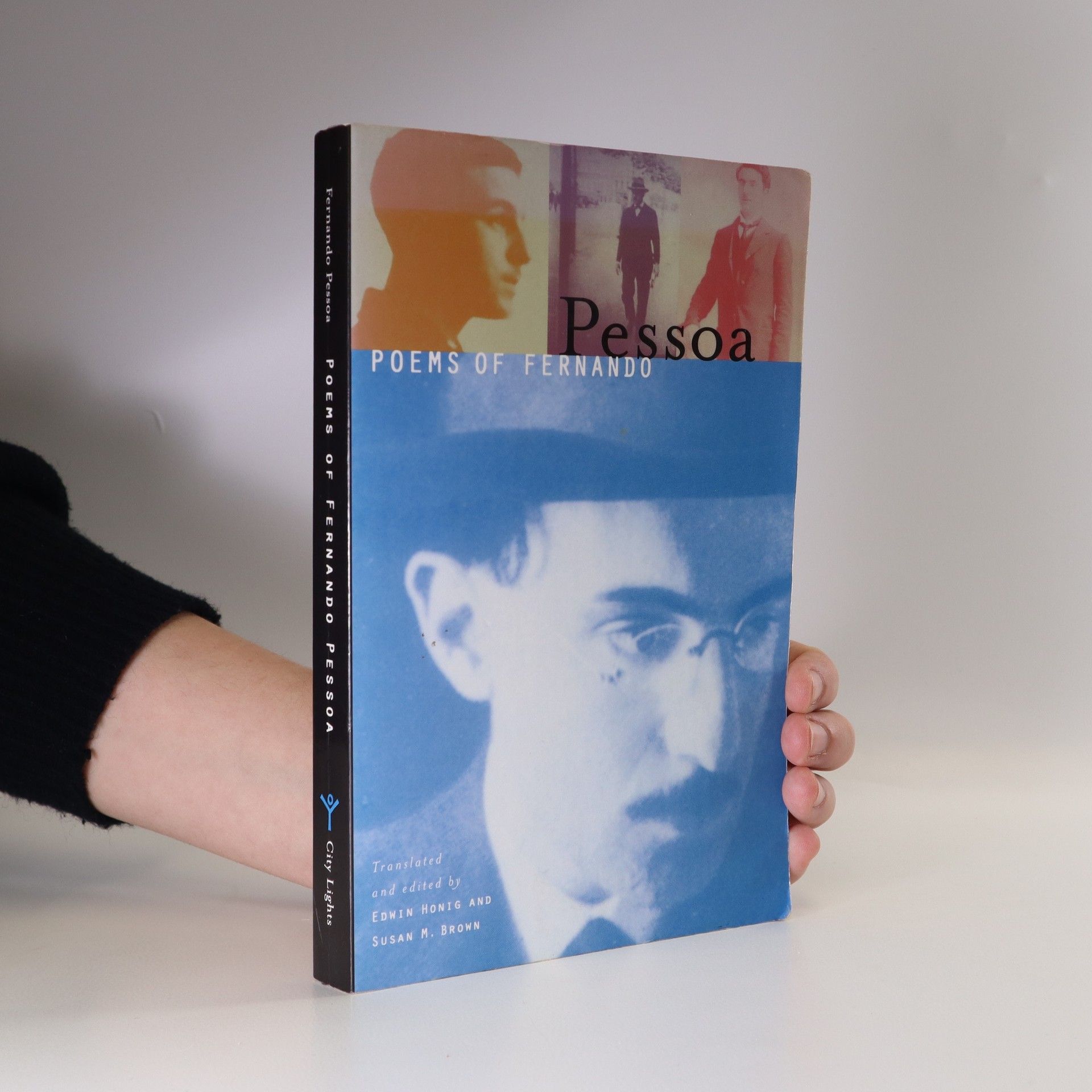

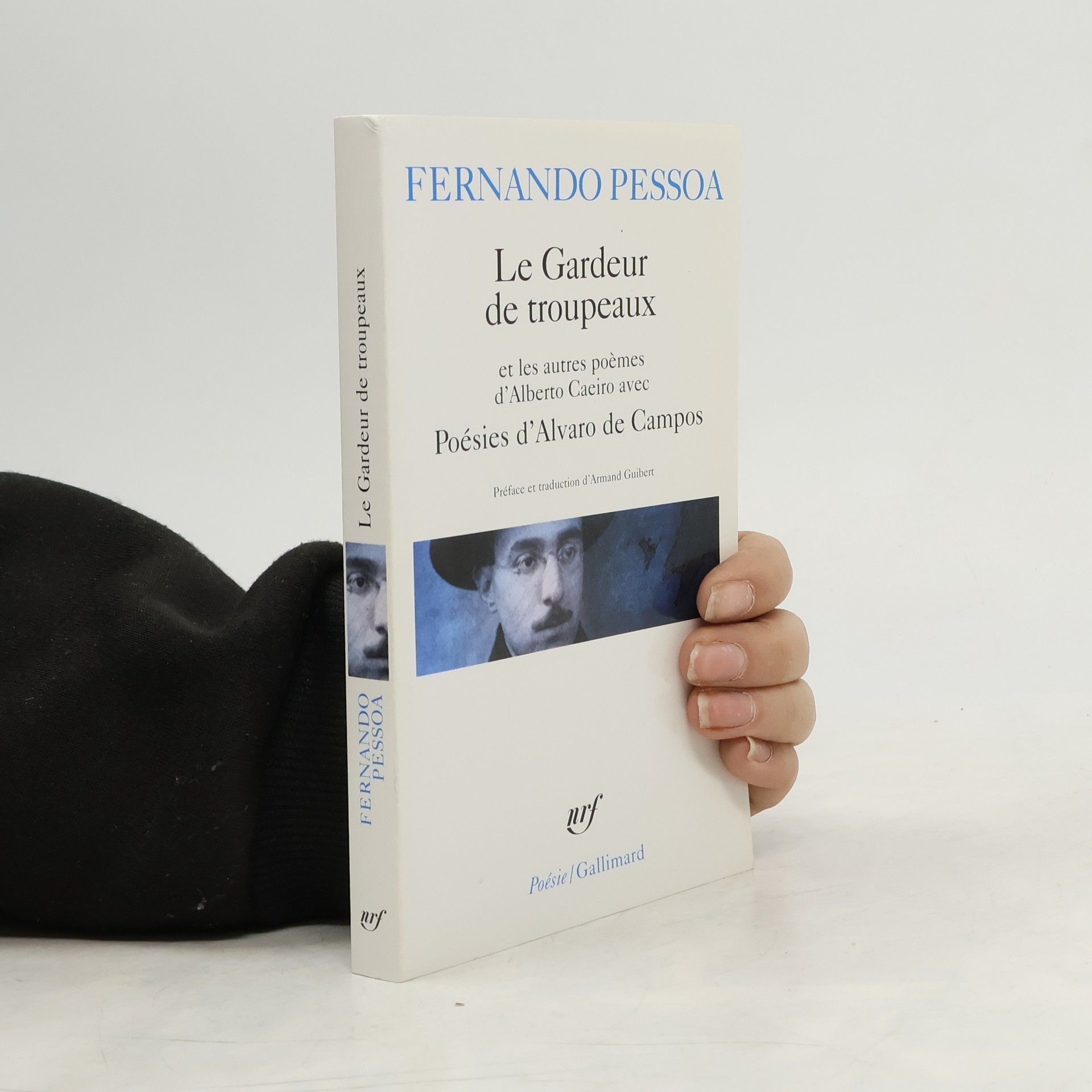
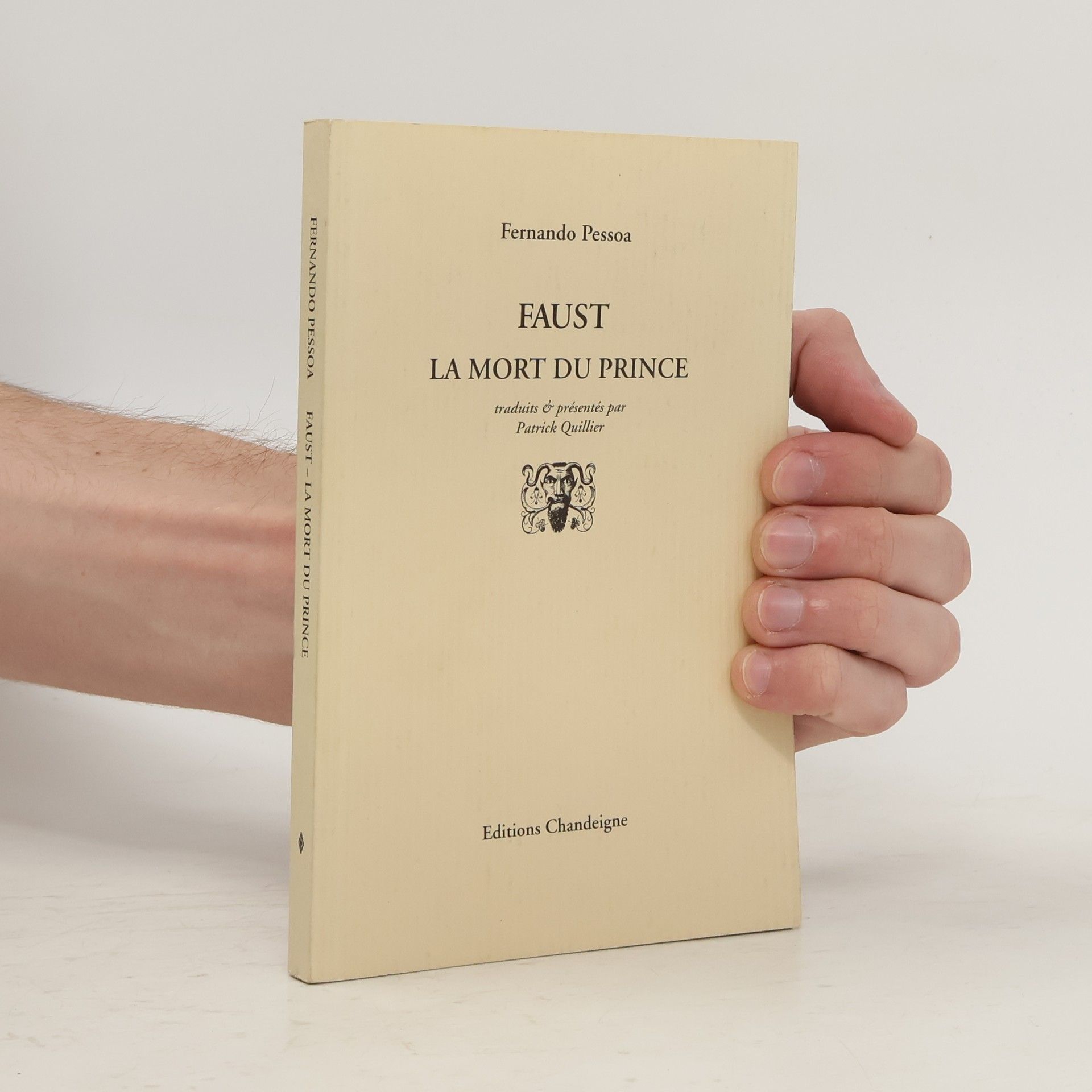
"A l'avant d'une modernité dont ce siècle à son déclin se réclame avec superbe, se dresse un homme qui fut obscur, effacé, inconnu de sa concierge, riche d'humour et rayonnant lorsque son miroir intérieur lui renvoyait son reflet futur. "Je ne suis rien", ce n'est pas une parole contrite du saint homme Job, mais un rappel de ce nada ibérique qui est au principe de l'être et à sa terminaison. Trois vers après cette affirmation du néant, survient cette antithèse éclatante : "Je porte en moi tous les rêves du monde" : un feu d'artifice cosmique. "Les poètes n'ont pas de biographie ; leur ouvre est leur biographie." Certes, Octavio Paz, la formule serait irréfutable si une oeuvre au pluriel n'impliquait des poètes multiples. Pessoa, le nôtre puisqu'il est à tous, est un nom qui dans sa langue se traduit par personne - non le nemo latin qui gomme toute identité, mais persona dans l'acception de "masque" ; en ce cas, le verbe apocalyptique qui débouche sur l'énigme, sur l'ambiguïté, sur la supercherie ludique", Armand Guibert.
Rivages poche / Petite Bibliothèque - 42: Fragments d'un voyage immobile
Précédé d'un essai d'Octavio Paz
- 126pages
- 5 heures de lecture
Ce vagabondage textuel à travers l'oeuvre de Fernando Pessoa voudrait présenter le portrait d'un homme extraordinaire et banal, loin de tout ordinaire. Réalisé sur le modèle des comptines d'enfant, ce recueil de fragments - choisis par Rémy Hourcade parmi les dizaines de milliers de feuillets que nous a laissés l'homme aux masques - agite, dans un désordre voulu, les figures chères à cet inconnu de lui-même tel que le définissait Octavio Paz.
Fernando Pessoa is Portugal's most important contemporary poet. He wrote under several identities, which he called heteronyms: Albet Caeiro, Alvaro de Campos, Ricardo Reis, and Bernardo Soares. He wrote fine poetry under his own name as well, and each of his "voices" is completely different in subject, temperament, and style. This volume brings back into print the comprehensive collection of his work published by Ecco Press in 1986.
The book features the remarkable poetry of Fernando Pessoa, a key figure in modern European literature, known for his unique alter egos: Alberto Caeiro, Ricardo Reis, and Álvaro de Campos. This updated edition collects his most significant works, showcasing a range from minimalism to exuberance. Translator Richard Zenith highlights Pessoa's innovative exploration of human consciousness and his profound impact on 20th-century poetry, emphasizing both the depth and humor found in his writing.
The Book of Disquiet
- 262pages
- 10 heures de lecture
A prize-winning international classic, first published in English in 1993, now with a new foreword by William Boyd.
The Complete Works of Alberto Caeiro
- 320pages
- 12 heures de lecture
A bilingual companion to The Book of Disquiet, by Fernando Pessoa
The largest and richest English-language volume of poetry from “the greatest twentieth-century writer you have never heard of” (Los Angeles Times) Edited, Translated, and with an Introduction by Richard Zenith, the author of the Pulitzer Prize finalist Pessoa: A Biography A Penguin Classic Writing obsessively in French, English, and Portuguese, poet Fernando Pessoa (1888–1935) left a prodigious body of work, much of it credited to three “heteronyms”―Alberto Caeiro, Ricardo Reis, and Alvaro de Campos―alter egos with startlingly different styles, points of view, and biographies. Offering a unique sampling of his most famous voices, this collection features Pessoa’s major, best-known works and several stunning poems that have come to light only in this century, including his long, highly autobiographical swan song. Featuring a rich body of work that has never before been translated into English, this is the finest introduction available to the stunning breadth of Pessoa’s genius.
The Selected Prose of Fernando Pessoa
- 342pages
- 12 heures de lecture
The Washington Post Book World has written that Fernando Pessoa was "Portugal's greatest writer of the twentieth century [though] some critics would even leave off that last qualifying phrase" and "one of the most appealing European modernists, equal in command and range to his contemporaries Rilke and Mandelstam." The Selected Prose of Fernando Pessoa, a Los Angeles Times Best Book of 2001, spans playful philosophical inquiry, Platonic dialogue, and bitter intellectual scrapping between Pessoa and his many literary alter egos ("heteronyms"). The heteronyms launch movements and write manifestos, and one of them attempts to break up Pessoa's only known romantic relationship. Also included is a generous selection from Pessoa's masterpiece, The Book of Disquiet, freshly translated by Richard Zenith from newly discovered materials. The Selected Prose of Fernando Pessoa is an important record of a crucial part of the literary canon. "Zenith's selection is beautifully translated, compact while appropriately diverse." -- Benjamin Kunkel, Los Angeles Times "[Pessoa] is one of those writers as addictive, and endearing, as Borges and Calvino." -- Michael Dirda, The Washington Post Book World
Selected Poems
- 160pages
- 6 heures de lecture
Contains poems that features four separate personae who have their own poetic identity. This title contribute to the 'mysterious importance of existence'. schovat popis
